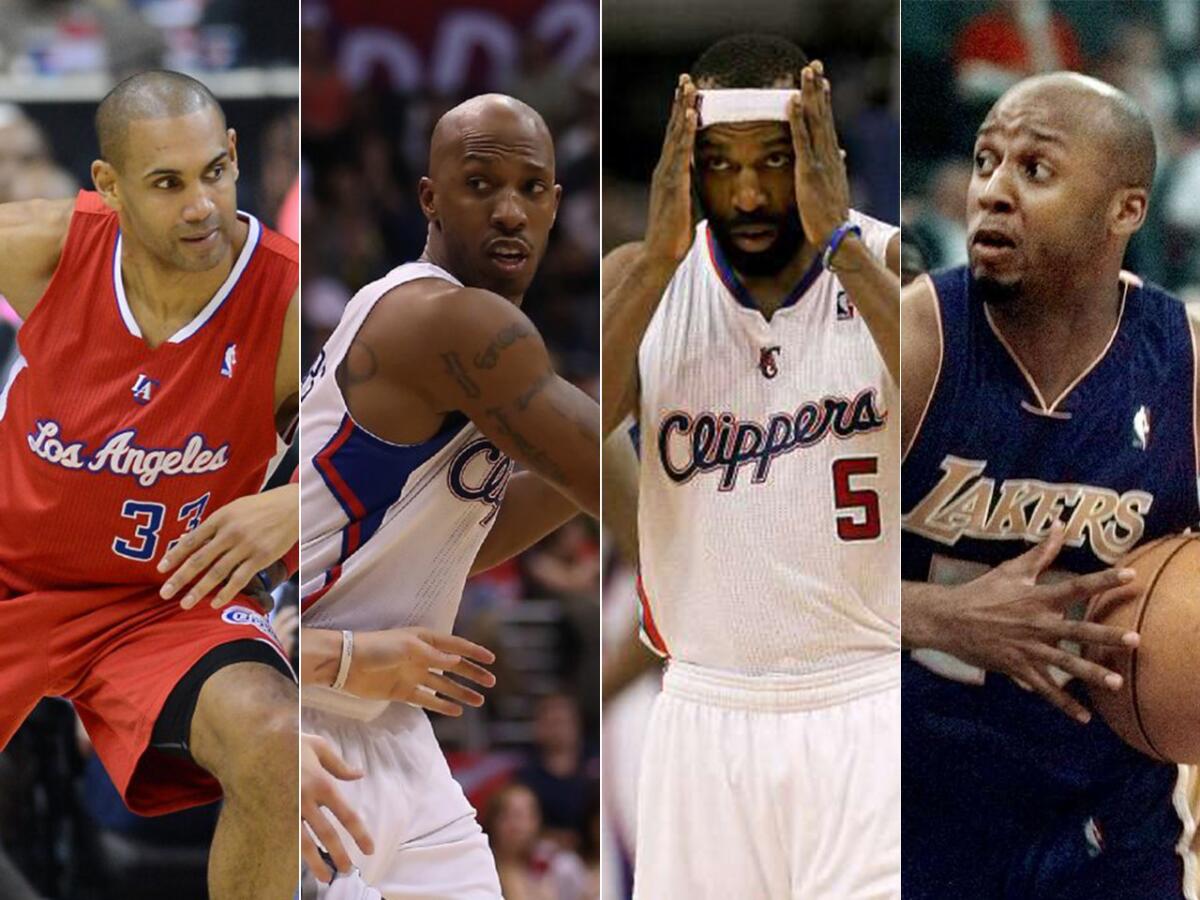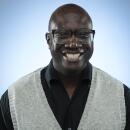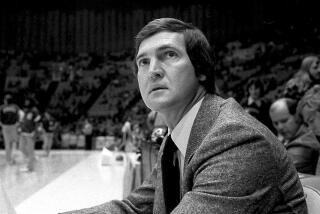Former players say Kobe Bryant must work on transition game

As Kobe Bryant nears his retirement, former NBA players Grant Hill, Chauncey Billups, Baron Davis and Brian Shaw all weigh in on life after basketball.
- Share via
After Kobe Bryant announced a week ago that he would retire at the end of this season, The Times reached out to several retired NBA players to get their thoughts on what it’s like to transition into a life after basketball.
Something each of the former players agreed on is that exiting a game they’ve loved since childhood isn’t easy, and for those who can’t come to grips immediately with not playing basketball anymore, it can cause some mental anguish.
“Depression is real in the NBA for retired players,” said Grant Hill, a seven-time All-Star who played 19 years in the pros. “It’s the one thing that validates you, and now you don’t have that. The game, this make-believe-world we have been in, consumes you and as a result of that, you don’t necessarily have time to develop other skills for the real world. For me, I’m going to stay busy.”
Hills, 43, retired after the 2012-13 season. He is now an NBA and NCAA tournament analyst for TNT, a co-host on NBA TV’s “Inside Stuff,” a minority owner of the Atlanta Hawks and has other business interests.
Former Detroit Pistons star Chauncey Billups, a five-time All Star, said that finding another passion after retirement is a key for former players.
“I sympathize with guys that retire that are not at peace with it,” said Billups, who played 19 years in the NBA and is now a studio analyst for ESPN. “The problem is most guys never set themselves up to do something, and I found out it is very depressing for a lot of guys.
“Think about it. It’s something that we’ve done since we were 8, 9, 10 years old. We’ve put every single thing that we have, not only mentally but physically and emotionally, into the game. And then one day it’s over. You go from being a very old dude at 37 in my sport to the day that you retire and you go back to being a young dude with no real experience now anywhere else. You can become lost and you can feel it if you’re not prepared for that.”
Former All-Star Baron Davis, who retired in 2012 after a 13-year career, said his friend Bryant probably won’t have any issues when he walks away from the game.
But for those players who aren’t prepared for the change, Davis said, they can quickly find out “the real world is a lot different.”
“You go from one world to a whole different world and that’s a culture shock,” Davis said. “Guys get depressed. It’s like you’re lost. It’s like who are you? You have to have a strong will, strong support system and you have to have stuff going on that keeps you busy.”
Davis found his niche by working in the film industry, something he had always wanted to do since his days at UCLA. He has produced a documentary on the famed amateur Drew League in South Los Angeles.
Billups, who retired after the 2013-14 season in Detroit, said he began planning for “my afterlife even before it was time” to leave the game.
About five years before Billups retired he hooked up with Junior Bridgeman, a former NBA player who became a successful entrepreneur after his pro career ended in 1987.
Billups said the two of them are partners in 30 Wendy’s franchises in the St. Louis market.
“I’m not the kind of guy to just sit around and do nothing,” Billups said. “I’m a goal-oriented guy and I’ve got to be chasing something. I knew that about myself and I knew that the day that I put the ball down, I had to find something else to be competitive about and to be good going out and working at it.”
After his retirement, Hill said, “I felt like to fill that void of basketball, I really needed to err on the side of being busy. I was super busy — too busy. … I think you have to try a number of different things to figure out what you like, what you don’t like, what can you do and maybe what you can’t do.”
Brian Shaw recalled a conversation he had with Kareem Abdul-Jabbar about life after basketball. Shaw remembers the former Lakers great saying how his body underwent changes immediately after he retired.
“He said all of a sudden you just stop that regimen you had for all those years and that his body went into shock,” Shaw said. “I started to feel like that. Kobe’s regimen is even more crazy than anyone that I’ve ever been around. So it’s going to be interesting to see.”
Shaw, 49, retired after playing 14 years in the NBA, his final four with the Lakers. He become a scout with the team in 2003, but Shaw admitted it took him more than a year after he retired to fully accept that he was no longer a player.
After retiring, Shaw became an assistant coach with the Lakers and Indiana, then later became head coach of Denver. The Nuggets fired him last season.
Shaw laughed about how he still had the “itch to play” when he joined the Lakers for training camp in Hawaii in October 2003 as a scout, only a few months after retiring.
“So even when I was demonstrating the drills, I was like, maybe if I do good in this drill, they may say, ‘You know, maybe he should come back and play. We might be able to use you,’” said Shaw, now a studio analyst for NBA TV. “It didn’t resonate and I guess I didn’t accept it until the next year.
“When you retire, you don’t get rushed up to the front of the line. All that stuff starts to fade. That can add to some of the depression some of the guys feel. So the key is to find what you like and just stay busy.”
Follow Broderick Turner on Twitter @BA_Turner
More to Read
Go beyond the scoreboard
Get the latest on L.A.'s teams in the daily Sports Report newsletter.
You may occasionally receive promotional content from the Los Angeles Times.











